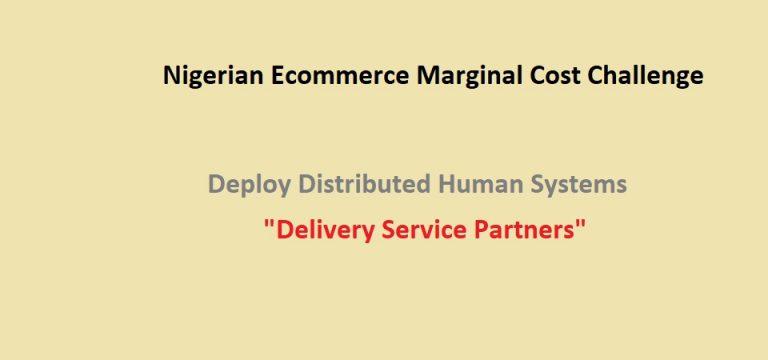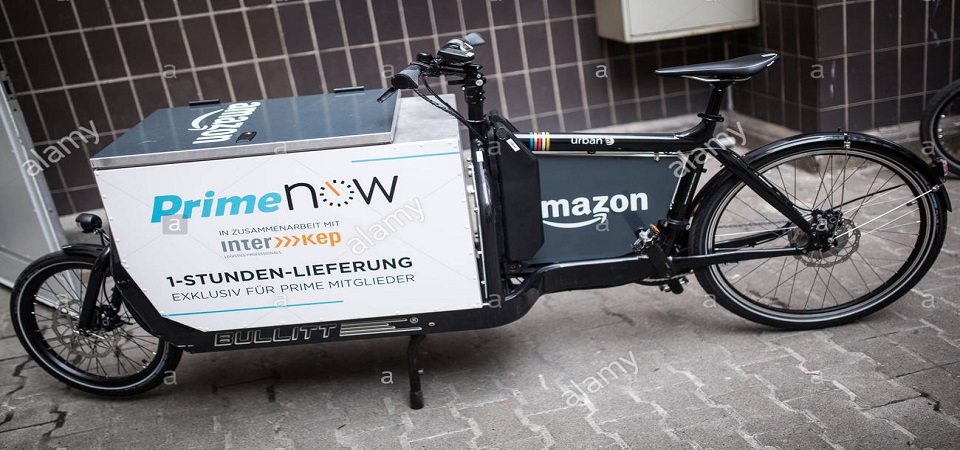
I have noted many times that the Nigerian ecommerce sector needs to fix its marginal cost challenge. That challenge is not digital but physical, and that means that ecommerce in Nigeria is largely a meatspace (offline) business. Anyone that fixes that marginal cost on distribution will pioneer a new dawn in the sector.
There are three major marginal costs which are consequential in the broad ecommerce business: cost of goods sold (COGS), distribution cost and transaction cost.The distribution cost is the most challenging in Africa because that is the cost that turns an ecommerce operation into a traditional physical business. The first, COGS, is incurred irrespective of the nature of the business. It is the cost of production, i.e. the cost of producing the product which is being sold. The last, transaction cost, is mainly the fees incurred as part of the commercial transaction activity. This can include a merchant fee for accepting credit/debit card from the payment processor. Here, I explain how the distribution cost can be handled.
In a piece in Harvard Business Review, I made a case that logistics remains a big issue. That logistics is the driver of that marginal cost paralysis. Until someone has a clear solution to logistics, it would be hard to make money in this sector since we do not have a functioning postal system. When we fix logistics, we would become unbounded by geography, distributing items not just in major cities but across the nation.
Amazon Human-Logistics
Amazon has just invented a clever way to handle this logistics issue: build an aggregation anchored on human systems at scale. Yes, Amazon wants people to become small business owners to deliver packages for it across America. That means registered people would come to its distribution centers, and collect items which they would take to shoppers’ homes and offices. Imagine armies of postal staff across American communities.
Register for Tekedia Mini-MBA edition 19 (Feb 9 – May 2, 2026): big discounts for early bird.
Tekedia AI in Business Masterclass opens registrations.
Join Tekedia Capital Syndicate and co-invest in great global startups.
Register for Tekedia AI Lab: From Technical Design to Deployment (next edition begins Jan 24 2026).
The company wants to help launch small businesses in the United States dedicated to taking its packages on the last step of their journey: from local Amazon sorting centers to the customers who ordered them.
It’s the latest attempt by Amazon to gain greater control of the delivery network at the core of its Prime business, which ships 5 billion packages a year globally.
{…}
Amazon’s new “Delivery Service Partners” and their staff members won’t be employed by the tech company. The initial $10,000 costs will go to helping them start an independent business that has to begin with at least five delivery vans and ramp up to 20 vans over an undisclosed period of time.
Amazon has negotiated discounts for approved entrepreneurs, including lower rates on insurance, fuel and leases for Amazon branded vans that have been customized inside for package delivery. People have to apply at logistics.amazon.com and be approved by Amazon. It’s also setting aside $1 million to specifically recruit and help military veterans become partners.
This works because it is America where trust is huge and Amazon can easily vet them effectively. We may not be as lucky in Nigeria. Yet, this is a model one has to consider. Can you get trusted people to become quasi partners to move items? They do not have to be part-timers but people that do this for a living.
All Together
We may not be as lucky as Amazon to have a system where people can be vetted at scale. Yet, there is something to learn from this model. If we have the ecommerce companies working together, the possibility of having critical volume will emerge. This will save them the burden of owning the employees and fleet. The vans for Amazon could be motorbikes in Nigeria. Those okada riders may make more money through this than riding bikes as transporters. But they would need volume to make this work. Bringing all the ecommerce into a logistics operating system will unlock value for many players.

Can someone make okada riders to be logistics and independent players? Sure, it is challenging to get many you can trust. The goal would be to make this very exciting that they see the distribution business as a good job.
The Nigeria ecommerce will see extensive growth when the challenge of marginal cost of distribution is fixed. I have suggested the hybrid model which the new Konga is built upon. But that model is very expensive and can only be executed by companies with deep capital: it involves running physical and digital stores.
---
Connect via my
LinkedIn |
Facebook |
X |
TikTok |
Instagram |
YouTube



Same strategy as DHL,DHL use such approach to deliver it parcels worldwide and its providing job to millions of it vendors that apply for the distribution.